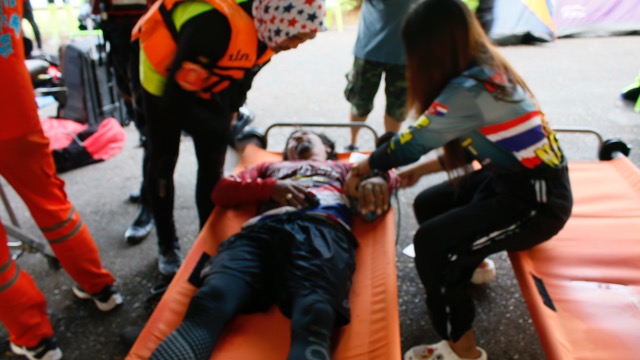Théo was found dead on the morning of January 11 in Fresnes. He curled up on the ground, naked, in a cell strewn with rubbish. After the publication of a conviction report on the “management” of this detainee, new investigations have been launched to ascertain whether there has been failure to help the person in danger. Especially since he is not the only prisoner who died in less than a year.
A succession of “failures” and “negligence” “led to the abandonment and then the abandonment of the prisoner”, 28, stigmatizes the operational report of the Inspectorate General of Justice (IGJ) issued in May, recently revealed by Marianne and consulted by the AFP.
“Failure to rescue a person in danger”
Following this mission, a report was sent to the Créteil prosecutor’s office at the beginning of June, on the basis of article 40 of the code of criminal procedure – which obliges any authority to report criminal acts of which it would be aware -. .
These are “facts capable of constituting an omission to help a person in danger”, indicated the indictment. The investigations were disoriented in Paris. Education on the search for causes of death is still ongoing in Créteil.
The “loss of direct contact” between Theo and prison staff “appears to have led to a worrying and rapid deterioration” in his health, the report said.
25 doctor visits in 41 days
Théo, with six mentions on his criminal record, in particular for theft, concealment and fraud, was undergoing medical treatment for heart problems and was followed up by the prison psychiatrist. In his 41 days of detention in Fresnes, he underwent 25 medical examinations, five of which were psychiatric.
But his “physical” and “psychic” state “rapidly deteriorated without causing any reaction from the staff”, the inspectors continue.
While his profile would have required an “individual or collective reaction of adequate care” and not a “dehumanised, apparently distanced and unsuitable management”, Théo had before him “only personnel in intervention uniform, camouflaged behind a shield.
“Physically imposing”, he lived “naked”, “urinating and defecating on his personal effects” and could eat on the floor or sometimes under the bed, “vomiting or making noises, especially of animals”. During interviews during the mission, the agents said they were “helpless”, “lost” or “bewildered” by this behavior, describing it as “possessed”.
Lack of controls
Jailed on December 2, 2021, he was to be tried in immediate appearance on January 11, the day of his death, for failure to comply with an individual measure of administrative control and surveillance. It was during this hearing that his mother learned of his death.
Coming to extract him from his cell to take him to the Créteil courthouse, the team discovered his lifeless body. The death “occurs in the context of nonspecific asphyxia syndrome” according to the autopsy.
On the night of her death, of the eleven guards who were supposed to check her cell, six did not and the other five did a “peephole check,” according to the inspectors.
They also noted that the officer on duty the morning of the death, who did not verify, “manifestly failed in his professional obligations” by not “ensuring the physical integrity” of Théo, who has already passed through five different prison sectors. In particular, he was in an area reserved for radical prisoners because he was mistakenly considered an “Islamist terrorist prisoner”.
A “chain of dysfunctions”
“This chain of malfunctions has greatly aggravated Theo’s situation. The conditions of his detention were completely unsuited to his profile and his psychiatric state, which no one seemed to have taken into account,” his lawyers Sidra Salim and Antoine Ory told AFP.
The officers involved were fined by the national disciplinary board, according to the justice ministry. Several days’ worth of fines were taken against three officers, a source familiar with the matter said.
In its report, the IGJ makes several recommendations to the director of Fresnes, asking him to ensure, for example, “hierarchical control” or “strengthen support for young people” agents.
Fresnes, the second largest prison in France but also one of the most dilapidated, has been repeatedly singled out for its detention conditions deemed unworthy.


